Benito Geordie
Adaptive Sampling for Deep Learning via Efficient Nonparametric Proxies
Nov 22, 2023

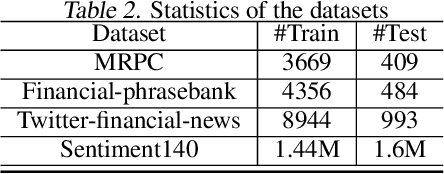
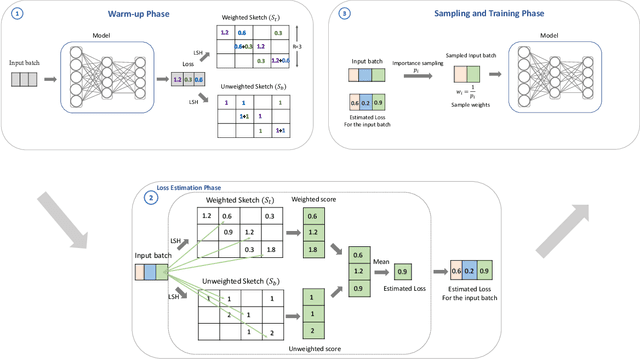
Abstract:Data sampling is an effective method to improve the training speed of neural networks, with recent results demonstrating that it can even break the neural scaling laws. These results critically rely on high-quality scores to estimate the importance of an input to the network. We observe that there are two dominant strategies: static sampling, where the scores are determined before training, and dynamic sampling, where the scores can depend on the model weights. Static algorithms are computationally inexpensive but less effective than their dynamic counterparts, which can cause end-to-end slowdown due to their need to explicitly compute losses. To address this problem, we propose a novel sampling distribution based on nonparametric kernel regression that learns an effective importance score as the neural network trains. However, nonparametric regression models are too computationally expensive to accelerate end-to-end training. Therefore, we develop an efficient sketch-based approximation to the Nadaraya-Watson estimator. Using recent techniques from high-dimensional statistics and randomized algorithms, we prove that our Nadaraya-Watson sketch approximates the estimator with exponential convergence guarantees. Our sampling algorithm outperforms the baseline in terms of wall-clock time and accuracy on four datasets.
BOLT: An Automated Deep Learning Framework for Training and Deploying Large-Scale Neural Networks on Commodity CPU Hardware
Mar 30, 2023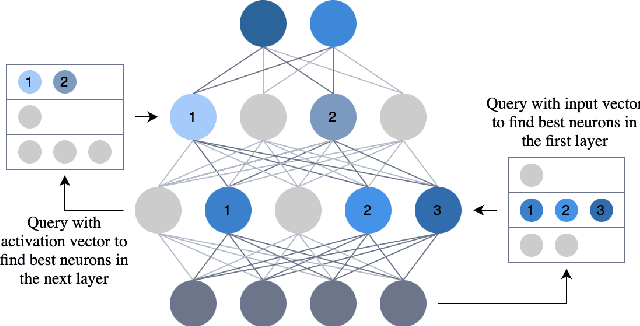
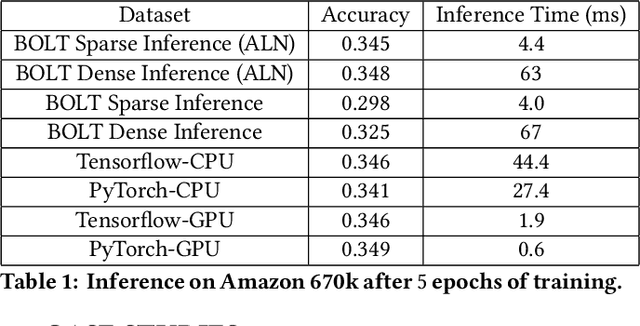

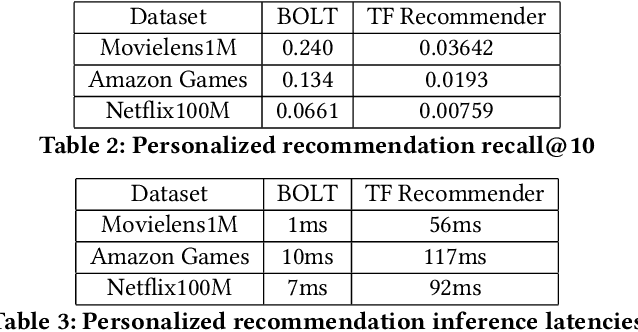
Abstract:Efficient large-scale neural network training and inference on commodity CPU hardware is of immense practical significance in democratizing deep learning (DL) capabilities. Presently, the process of training massive models consisting of hundreds of millions to billions of parameters requires the extensive use of specialized hardware accelerators, such as GPUs, which are only accessible to a limited number of institutions with considerable financial resources. Moreover, there is often an alarming carbon footprint associated with training and deploying these models. In this paper, we address these challenges by introducing BOLT, a sparse deep learning library for training massive neural network models on standard CPU hardware. BOLT provides a flexible, high-level API for constructing models that will be familiar to users of existing popular DL frameworks. By automatically tuning specialized hyperparameters, BOLT also abstracts away the algorithmic details of sparse network training. We evaluate BOLT on a number of machine learning tasks drawn from recommendations, search, natural language processing, and personalization. We find that our proposed system achieves competitive performance with state-of-the-art techniques at a fraction of the cost and energy consumption and an order-of-magnitude faster inference time. BOLT has also been successfully deployed by multiple businesses to address critical problems, and we highlight one customer deployment case study in the field of e-commerce.
 Add to Chrome
Add to Chrome Add to Firefox
Add to Firefox Add to Edge
Add to Edge